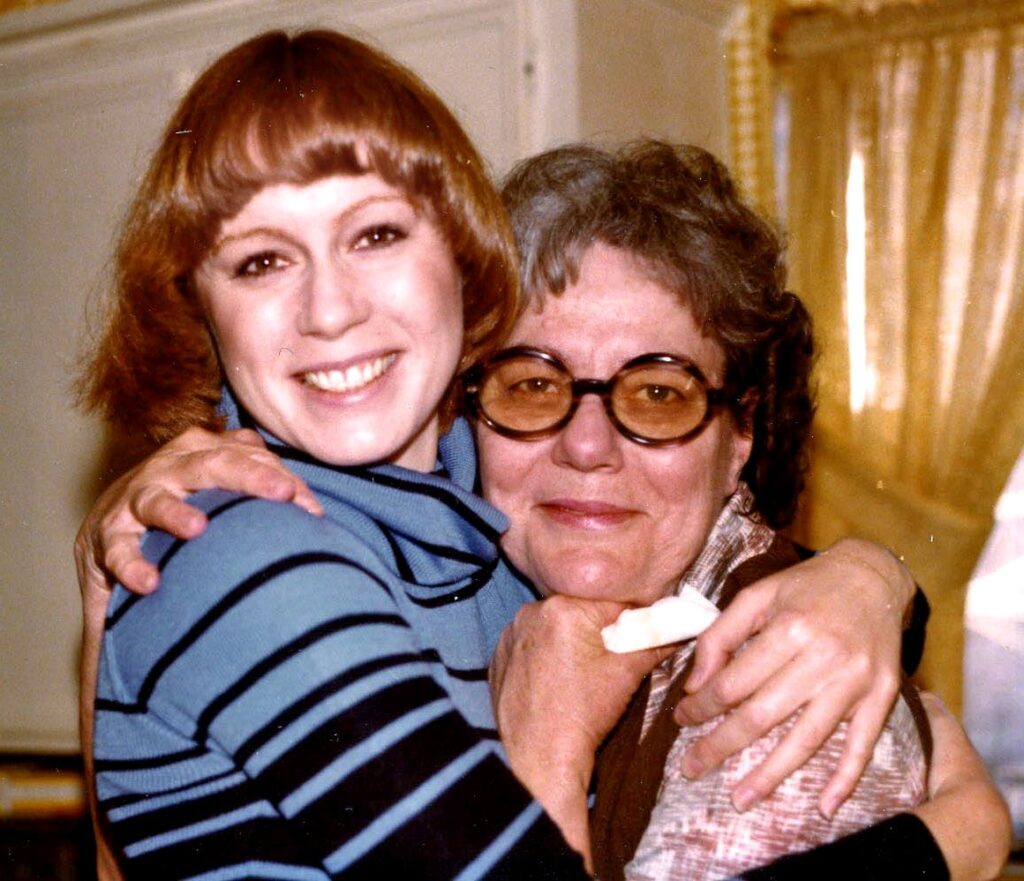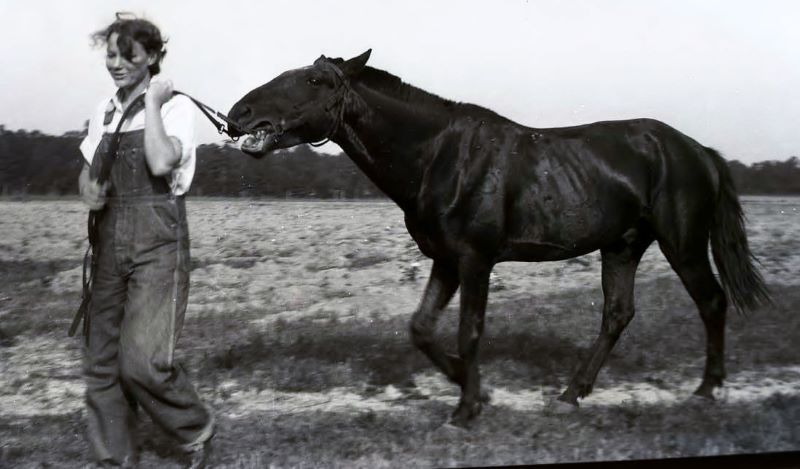(Written in November 2001)
I’ve had a lot of time to think about my mother during the past couple of years. Who she is, where she is. Not that I’ve misplaced her; in fact, she’s in a wonderful big house just a few miles east of Conroe, Texas, with ten other eighty-somethings who have no idea that they, too, have lost themselves somewhere along the way.
She remembers slices of her past, just barely at times. Phrases, snapshots, names, feelings. A teacher, a Navy lieutenant, a college student, a daughter—but not a sister, not a mother, not a grandmother. Her perception of time keeps ever-so-gradually slipping backward. She asks about her mother, her father, her cousins, her aunts, her long-dead grandparents. But never her sister, never her brother, never her husband, children or grandchildren. Sometimes I imagine evil little file clerks inside her brain, searching out the parts of her treasured memory that have to do with me, with my father, with my brother, and throwing them all away.
There was a time, after I moved her to her new home, when she would ask for me, her only daughter. There was a time when she would beg me to take her with me, to not leave her where she was. She still knew enough then to realize that it wasn’t home, but not enough to know where home was exactly, or how to get there. Now she looks up blankly when I come to visit and seems not to care at all when I leave. I urge her to blow me a kiss, as we had done for decades when we parted, but the most I can hope for now is a hesitant wave.

This lover of language, this teacher of Greek and Roman mythology, this scholastic and academic whiz—salutatorian of her high school graduating class—can no longer carry on an intelligent conversation. She searches for the right words, but most often talks in jumbled sentences that express something only she can know. I laugh when she laughs, I look sympathetic when she’s upset. I try to mirror her thoughts. The sad truth is that most of the time, we are both clueless.
But even with the very essence of the woman I knew as my mother slipping away, what has bubbled to the surface through these many months are glimpses of the woman I would have known, if I had known her as a friend, not as her daughter. And as a friend, who grew up in Willis, Texas, in a 1930s country-fueled life. This person I never fully knew, during the forty-plus years she was “Mother,” is so incredibly determined, blunt beyond words, and at times, just a little crass. My grandmother would have been appalled to hear some of the words that come out of her daughter’s mouth these days.
My mother speaks her mind, as much as she can. She goes after what she wants, even if it means struggling with (and cursing) a walker to maneuver across the floor. Food within her grasp disappears before her caregivers can snatch it away and return it to its rightful owners. Yet, even with her Mother-Self missing in action, she is so well-coifed, as always, with her lipstick in place and her coordinated Alfred Dunner outfits freshly laundered. But who is this woman from so many decades ago who appears at a moment’s notice and is gone again just as quickly? What does she feel, know, love? What is her passion, her vision?
What drove her, just a year ago, with a broken hip and no idea where she was or what had happened to her, to fight her way back to mobility, even with her physical therapist saying she’d never walk again? This was the end, he told me, thereby discarding her situation as hopeless. Defiant, determined and rigidly set on her path, she fought through her fears and her tears, her desperate looks and angry words, toward the highest measure of independence that God would allow her to recapture. Against all odds, she walks again.

In my office in downtown Houston, I stare at a black-and-white photograph. Five World War II Navy WAVES and a few jaunty sailors, with cigarettes between their fingers and broad smiles on their faces, are seated around a table littered with long-neck Grand Prize beer bottles. Frozen in time. The War was over. My father was waiting in the wings. Just a year before my brother was born. And she was so happy. She was someone with whom I would have been friends. Very close friends. I like her. I see myself in her. I see this unquestionably lovely, incredibly smart, in-control woman in myself. And it astonishes me to realize, and to admit, that we are truly so very much alike.
Whatever ravages of the brain Alzheimer’s brings to bear on its victims, it also must, by its very nature, strip away the conventions and the pretense, the ways of being we learn as we become the people we display to the world. If we look, ever so closely, we can see beneath the sorrow of the disease the gifts that it offers. This is who she really is, it is telling me. This is the woman who has been there all along. And this is what my mother has left to teach me. Be brave. Be strong. Go after what you want, relentlessly. Be not afraid of failure. Sleep when you are tired. Eat when you are hungry. But above all else, no matter what, never, ever lose who you really are.
(Written in November 2001, less than one year before my mother’s death in September 2002.)



7 thoughts on “Finding Mother”
How truly deeply this has touched me. While reading, memories of her were flooding into my mind. What a gift this day.
Thank you so much, Freida.
touching😥keep loving is all we can do💝
Love reading your pieces. What a remarkable woman your mother was.
I have a friend descending into dementia. His personality is the same as we have always known, but like your mother, current time and present location have blurred with past memories. Another insightful and well written piece. Thank you.
I, too, walked alongside my mother during her dementia journey. I completely identify with your words ” I laugh when she laughs, I look sympathetic when she’s upset. I try to mirror her thoughts. The sad truth is that most of the time, we are both clueless.” And, in my mother’s world…we sang Christmas carols whenever possible, because they were firmly embedded in her brain and always brought a smile to her face.
Well said. I like the way you put it: “have lost themselves somewhere along the way.” My mother also died in 2002 after traveling the way you describe including the broken hip and loss of mobility. In 2009 l realized my wife was going that way also. I dreaded most the time when she would no longer recognize me. It came. She told her hair dresser that “most people don’t know it but we aren’t really married.” Cancer intervened and in August of 2017, 3.5 months after our 64th wedding anniversary, she was gone. I’m 90 now and my mind is strong but I have some problem verbalizing. I didn’t mean to say all this but guess I just needed to unload. Thanks